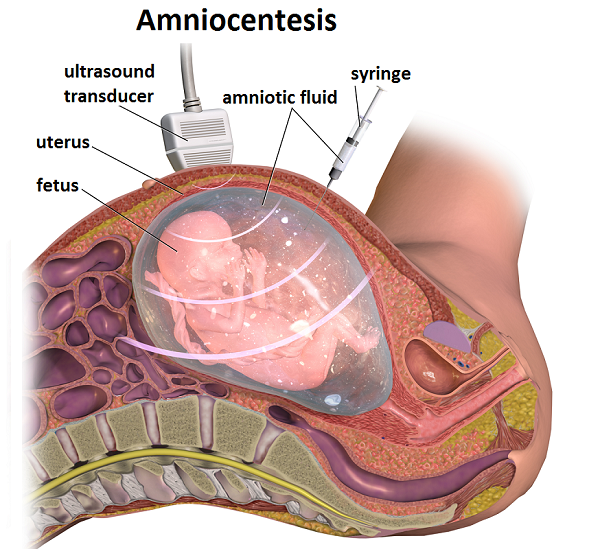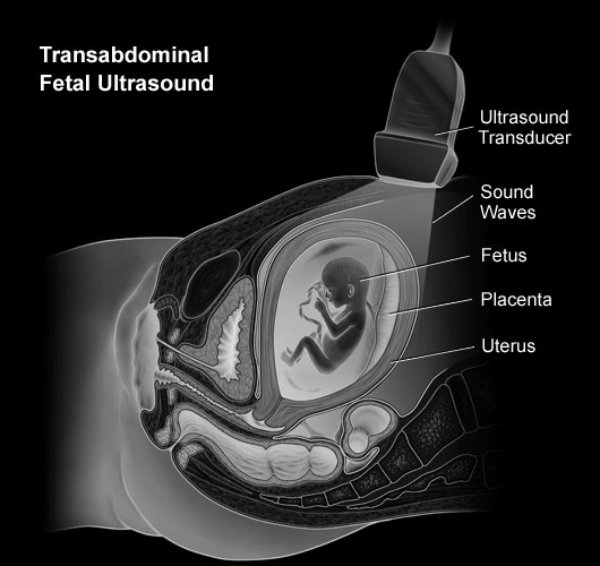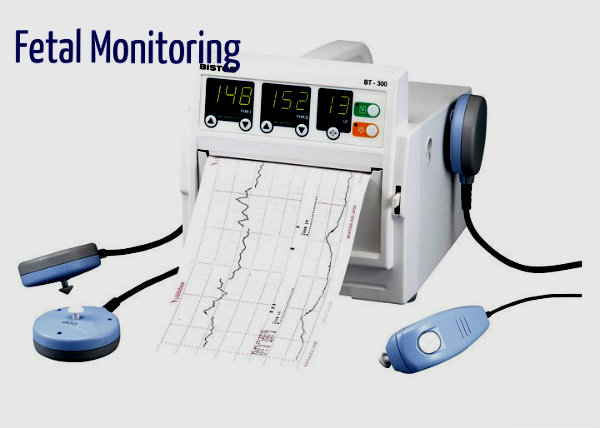For all those who are reading this article now, a hearty congratulations from our side on reaching the most beautiful and significant stage of your life. In your new journey of bringing a life to this planet, we are there with you always; as you gradually move towards one of the most awaited days of your life.
Parenting responsibilities begin not when you hold the baby in your arms for the first time. It rather initiates right from the moment you know that you have conceived.
Opting for correct and timely clinical tests to monitor fetus development, along with suggested precautions from your doctor, and taking a good care of yourself, together guarantee the wellbeing of your child.
However, before we move into a detailed discussion on tests during pregnancy, I would like to know if all of you reading this article have undergone a clinical pregnancy test to reaffirm conception?
Now, there’s no harm depending on homemade tests to know if you have conceived or not. However, administering the tests all by yourself is critical. A wrongly administered test, with regards to procedure and timings may prove you non pregnant; even when you have truly conceived. And a delay in knowing your pregnancy status; postpones the vital steps you need to take henceforth. So, opt for the following clinical tests today!
Clinical Tests To Confirm Pregnancy:
There are two clinical tests to confirm your pregnancy:
- Urine test for Pregnancy
- Blood test for Pregnancy
Both these tests look for Human Chorionic Gonadotropin (HCG) hormone traces in the sample collected. HCG hormone is released by the embryo post implantation. HCG Blood tests are again of two types:
- Quantitative HCG Blood Test: Determines exact levels of HCG in blood.
- Qualitative HCG Blood Test: Determines only the presence of HCG content and does not show exact levels.
Now, if both these tests come out with positive results, you are headed to a series of other lab tests throughout your pregnancy. Get a thorough understanding of these tests, known as the Prenatal or Antenatal Testing.
Pregnancy Period – Divided into 3 trimesters:
A normal pregnancy period ranges from 38 to 42 weeks. The entire span has been divided into 3 stages or trimesters, depending on the number of weeks and fetus development. During these trimesters, moms to be undergo a number of tests listed below:
First Trimester: Begins on the first day of your last period and ends on 13th week of pregnancy.
Significance: Vital organs, bones and hair of your baby develop during this first trimester alone.
Tests to undergo during First Trimester:
- Fetal Ultrasound
- Two blood tests – HCG and Pregnancy Associated Plasma Protein Screening (PAPP-A)
- Urine tests to detect glucose presence and albumin
- Genetic testing during the end phase – Optional
- Chorionic Villus Sampling
- PAP Smear Test
- Complete Blood Count
- Thyroid Test
- Know your body weight
Second Trimester: Begins on the 13th week and ends roughly with the commencement of 28th week of pregnancy.
Significance: Your baby is now able to hear you. Growth of bones continues along with formation of urine and sex organs.
Tests to undergo during second trimester:
- Glucose Screening to check for gestational diabetes
- Amniocentesis
- Alfa-fetoprotein
- Ultrasounds
- Doppler Ultrasounds
- Fetoscopy
Third Trimester: Begins with the 28th week and ends with the birth of your baby.
Significance: The fetus growth is complete and the baby prepares to take birth.
Tests to undergo during third trimester:
- Group B Streptococcus
- Fetal Monitoring
- Non stress test
What to expect from tests? First trimester to Third Trimester.
Most parents-to-be remain a little anxious about the test reports till they manage an appointment with their Obstetrician and Gynecologist. Although your doctor would be the best person to discuss test results; you may have a brief understanding of the test you just underwent and information it infers.
Understanding First Trimester tests:
Fetal Ultrasound: These are scans visible on a monitor screen and help to determine due dates or possibility of twins. It helps the doctor to understand how smooth your pregnancy will turn out to be. Both Transvaginal and Transabdominal ultrasounds are carried out.
Pregnancy test – HCG: As already mentioned, HCG is released as soon as you get pregnant. HCG levels need to show a steady increase as pregnancy proceeds. At around 3 weeks, HCG levels are around 5- 50 mIU/ml. The levels are at the peak around the 10th week, accounting for 288000mIU/ml and then decrease by some fractions around 11th or 12th week.
Pregnancy Associated Plasma Protein Screening (PAPP-A): A test to determine PAPP-A protein in blood. The test determines chances of stillbirth or possibilities of down syndrome in the baby to be born.
Chorionic Villus Sampling: A test usually performed on a pregnant women older than 35 years of age. Women with family history of genetic disorders or suspected to have genetic disorder, are likely to undergo this test.
During the procedure, either a catheter is inserted into the cervix or a needle placed through your abdomen to collect a sample of placenta. No chances of miscarriage are associated with this procedure.
PAP Smear Test: A procedure that involves collecting sample of cells from your cervix which is sent to the lab to determine any signs of cervical cancer of Sexually transmitted diseases.
Complete Blood Count: A test to determine the number and the type of blood cells in body. Precisely, CBC test determines RBC, WBC and platelet counts to know if you are anemic in any form.
Rubella Test: A blood test done to detect the presence of antibodies that fight rubella virus. Rubella or the German Measles test shows the presence of recent infection if it comes out with positive results.
HIV Test: Every woman needs to undergo an HIV pregnancy test for obvious reasons to determine HIV infection and chances of spreading the same to the baby.
Besides, urine tests and thyroid tests are conducted to determine normal functions of the related organs.
Understanding Second Trimester Tests:
Glucose Screening: Conducted during the 24th – 28th week, normal results of the screening test rules out any chances of the would be mother to have developed diabetes during pregnancy. The problem if left undiagnosed may lead to oversize babies and troubled deliveries.
During the procedure, you would be given a special soda to drink. After an hour, your blood sugar levels are tested. Unfortunately, if you come up with high levels, you will be needed to opt for glucose tolerance test.
Glucose tolerance test requires you to drink a glucose solution on an empty stomach. Thereafter, a blood sample would be collected and tested every hour for around 3 hours or so.
Amniocentesis: Conducted during the 15th or 18th week, normal results rule out any chances of the fetus to be born with neural tube disorders or any other genetic complications. Women above the age of 35 years or having some chances of genetic abnormalities need to undergo this test.
Prior to the procedure, an ultrasound is conducted to determine exact fetus location. Thereafter, a needle is inserted through your abdomen to reach womb. A small amount of fluid is withdrawn from the sac and then sent to a lab for testing.
Post procedure, women may experience slight pain around the abdomen or vaginal spotting. Very rarely it may lead to miscarriage.
Alpha- Fetoprotein Test: Alpha Fetoprotein is a type of protein produced by the fetus. The test involves drawing a sample of your blood to detect the presence of alpha protein. Positive results indicate that the baby may develop certain genetic disorders such as Down Syndrome. However, further testing with amniocentesis is required to confirm results.
AFP test along with determination of HCG content and hormone estriol is known as triple marker test. And when the same test looks for HCG, AFP, Hormone estriol and Inhibin-A, the test is referred to as Quad marker test.
Doppler Ultrasounds:
Doppler ultrasounds reveal blood flow in various body parts of the developing fetus; such as – brain and heart. Having accurate blood flow guarantees that the fetus is receiving required amount of nutrients and oxygen from mother.
Doppler ultrasounds are no different from normal ultrasounds. The procedure involves just a couple of minutes during which a gel is applied to your tummy followed by a hand held device being moved all through your abdomen. This procedure creates an image on a monitor screen and helps your sonographer to understand the blood flow within the fetus body.
Mothers expecting twins, or with high BMI scores, or not showing healthy fetal growth need to undergo this test without fail.
Fetoscopy:
Mothers who are at a high risk of giving birth to an unhealthy baby are suggested to undergo this test. Fetoscopy involves viewing the growing fetus through a special endoscope known as fetoscope.
During the procedure, a small incision is made through the abdomen and the endoscope is inserted into the uterus and the amniotic sac. Thus, helping the doctor to detect possibilities of the baby to be born with some abnormalities that could not be diagnosed with other tests.
Understanding Third Trimester Tests:
Group B Streptococcus: A test done to check Group B Streptococcus bacterium in body. The bacterium is harmless and is present in intestines and genital tracts. However, this bacterium can lead to serious illnesses in the new born and also delivery complications. Therefore, testing for this bacterium is crucial.
The test is conducted in the 35th week of pregnancy. During the procedure, your physician will gently swab through your lower vagina and rectum to collect samples that are tested in a laboratory. The presence of GBS, suggests your doctor to prescribe antibiotics during labor, so as to prevent spreading of bacteria to your baby during delivery.
Besides, GBS may lead to following problems during pregnancy:
- Urinary tract infection
- Pneumonia
- Sepsis
A baby infected with GBS is very likely to suffer from pneumonia, meningitis and sepsis; days or months after delivery.
Fetal Monitoring: While you are under labor, it is very important to continuously track your baby’s conditions. Understanding the baby’s capacity of coping with the contractions and then pass through the narrow birth canals is extremely important to know if you can undergo a normal delivery of a C section.
Therefore, during labor, your doctor will attach an ultrasound transducer that picks up heart beats of your baby and displays it on a monitor screen. If the results are not favorable, you may have to undergo a C- section; even when scheduled for a normal vaginal delivery.
These were few of the tests that are mostly ordered during pregnancy. Besides, some other tests may also be ordered for complex cases.
Pregnancy is a beautiful stage that every women is blessed with. Therefore, it is important to enjoy every moment of it. However, while you are all very happy to have a life growing within, do not falter at fulfilling the responsibilities you have towards your baby who is yet to come.
Apart from bringing in a bundle of joy into your life, pregnancy is also a sense of huge responsibility. You are responsible not only to bring in a new life to this planet, but to give your baby a healthy life is one of your foremost responsibilities.
Therefore, never miss out pregnancy tests you are scheduled for. Once you are done, make followups with you doctor without delay. And in the meanwhile, when you are still awaiting your appointment with your doctor, you have this post to help you learn about the purpose behind the test you have undergone and the expected results.




